Author: HE Sheng
In China, licensing in has become a key link in the new drug research and development industry chain. Licensing is when one company gives another company permission for a specific period of time to manufacture its product in return for an agreed-upon payment. In this example, the company giving permission is a foreign one and the one doing the manufacturing is Chinese. The process includes granting permission to intellectual property rights under defined conditions.
On the one hand, licensing can make up for the shortcomings of the manufacturing company’s product line, on the other hand, multinational pharmaceutical companies also rely on authorizing research projects to improve their products, promote the Chinese market, or integrate existing businesses.
In recent years, as the pharmaceutical industry in China has continued to change and the market has become more open, the trend of frequent alliances between Chinese and foreign pharmaceutical companies to jointly develop the domestic and international pharmaceutical markets has become increasingly pronounced. We have selected the top ten licensing in agreements according to total transaction volume in China’s biomedical industry in 2020.
BeiGene obtains authorization for three hepatitis B drugs from Assembly Bio
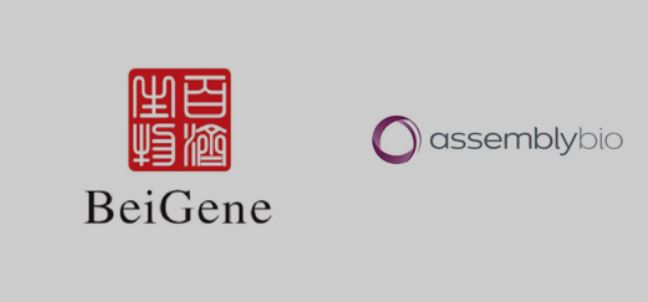
In June, Assembly Bio granted BeiGene the exclusive right to develop and commercialize ABI-H0731, ABI-H2158 and ABI-H3733 in Greater China. ABI-H0731 and ABI-H2158 are currently in phase II clinical development, while ABI-H3733 is in phase I clinical development. BeiGene will be responsible for drug development, pharmaceutical registration, and commercialization activities in China. Assembly Bio reserves all rights to its hepatitis B research and development pipeline worldwide except for in the above regions.
The current standard treatment for hepatitis B is long-term inhibitory therapy, which can reduce but not eliminate the virus. Because the cure rate is still low, there is a great demand for new hepatitis B therapies.
Through this collaboration, BeiGene’s R&D pipeline has also expanded from cancer indications to liver diseases. China has a huge demand for hepatitis B treatment. One third of the world’s hepatitis B patients are in China.
LianBio and BridgeBio reach a US$532 million global collaboration
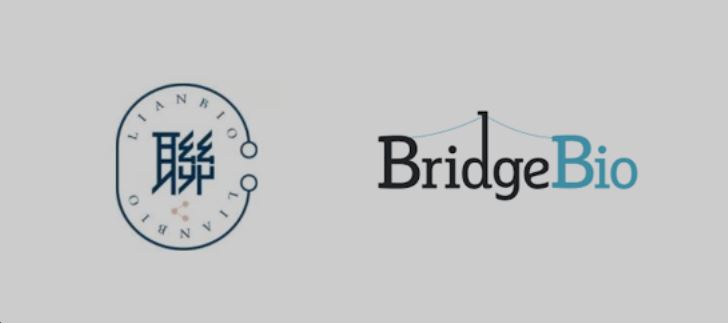
On August 11, Shanghai-based LianBio announced its official establishment. That same day, BridgeBio announced that it had reached a collaboration with LianBio to expand its pipeline to China. The initial stage of the collaboration will focus on two tumor products infigratinib and BBP-398 developed by BridgeBio. At the same time, LianBio has obtained the priority right to use more than 20 of BridgeBio’s pipeline products in China and other major Asian markets. In return, BridgeBio will receive US$26.5 million in near-term payments plus US$505 in milestone payments, tiered double-digit royalty payments, and an equity interest in LianBio.
The anti-tumor drug candidate infigratinib is a first-of-its-kind selective FGFR inhibitor. It is currently in the phase 3 development stage for the treatment of cholangiocarcinoma and urothelial cancer caused by abnormal FGFR genes.
Another anti-tumor product, BBP-398, is a new SHP2 inhibitor, for tumors driven by RAS and receptor tyrosine kinase mutations.
Huadong Medicine introduces ImmunoGen ovarian cancer ADC drug for US$300 million
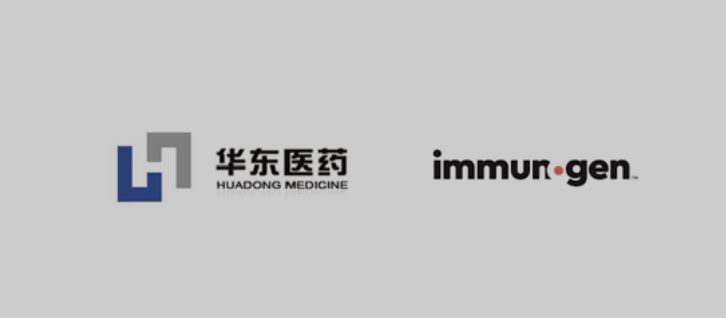
In October, ImmunoGen granted Huadong Medicine the exclusive clinical development and commercialization rights of Mirvetuximab Soravtansine in Greater China. ImmunoGen is one of the world’s well-known ADC drug development companies, with a current market value of US$1.004 billion. ImmunoGen will receive an upfront payment of US$40 million and is eligible to receive up to US$265 million in potential development, regulatory, and commercial milestone payments.
Mirvetuximab Soravtansine is currently undergoing Phase III clinical trials in the United States. Clinical trials have not yet started in China. It is intended for the treatment of ovarian cancer.
Huadong Medicine focuses on innovative transformation strategies and is committed to building a deep pipeline of innovative products for tumor, endocrine and autoimmune diseases. This collaboration has added a clinical blockbuster product to Huadong Medicine’s product pipeline. By giving full play to the advantages of Huadong Medicine in clinical development, accelerated registration and commercialization, it provides ImmunoGen with a huge opportunity to enter the world’s second largest pharmaceutical market. Mirvetuximab will undoubtedly become an eye-catching late-stage oncology drug.
Inmagene and Affibody reach a global strategic collaboration on the innovative autoimmune drug ABY-035
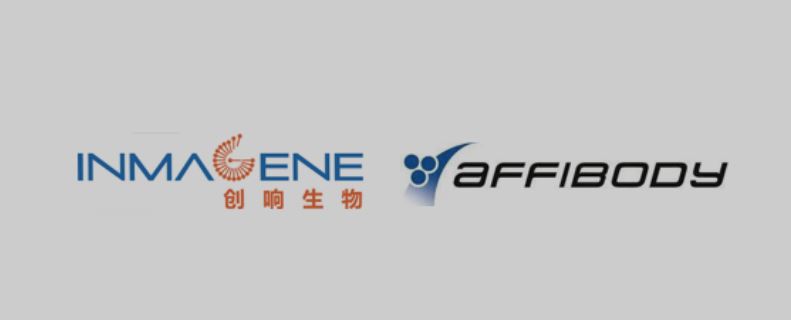
In May, Inmagene obtained the exclusive development and commercialization rights of Affibody’s innovative autoimmune drug ABY-035 in China, Hong Kong, Taiwan, Macau, and South Korea, as well as the clinical development in Asia-Pacific regions excluding Japan. Affibody is a Swedish biotech. By the terms of the agreement, Affibody will receive a €9.2 million upfront payment and could receive up to €198.8 million in additional regulatory and sales milestones.
ABY-035 is a new type of fusion protein drug that inhibits the inflammatory protein interleukin (IL-)17. It is about to complete phase II of global clinical trials among patients with moderate-to-severe psoriasis. ABY-035 was developed using Affibody’s original and globally patented two technology platforms “Affibody Technology Platform” and “Albumod Technology Platform”.
Compared with traditional antibody drugs, Affibody’s products have higher affinity and lower molecular weight as well as extremely broad commercial application prospects.
GrandPharma introduces 6 radionuclide conjugated drugs from Telix for US$225 million
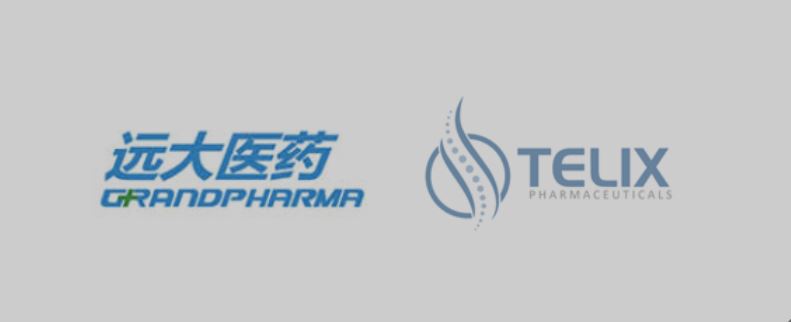
In November, GrandPharma announced that it will pay up to US$225 million in advance and milestone payments to Telix in order to obtain multiple innovative RDC products (TLX591) for the treatment of prostate cancer, clear cell renal cell carcinoma and glioblastoma (TLX 250, TLX101) and a variety of innovative RDC products for tumor diagnosis (TLX591-CDx, TLX 250-CDx, TLX599-CDx) development, production and commercialization rights in the Greater China region. Telix is an Australian company.
According to data from Statista, the global radiopharmaceutical market scale was around US$3.98 billion in 2018 and is expected to reach US$5.06 billion by 2023. According to Frost & Sullivan’s forecast, the compound annual growth rate of China’s radiopharmaceutical industry is about 18.6%, and the total domestic market is expected to reach RMB 9 billion by 2021.
Telix’s new radionuclide coupling technology enables more targeted molecules or antibody drugs, which has upgraded the imaging diagnosis and treatment of multiple cancers. Telix’s radionuclide coupling technology will provide Chinese patients with integrated diagnosis and treatment solutions for multiple cancer types.
For US$219 million, 3DMed is authorized for AVB-500
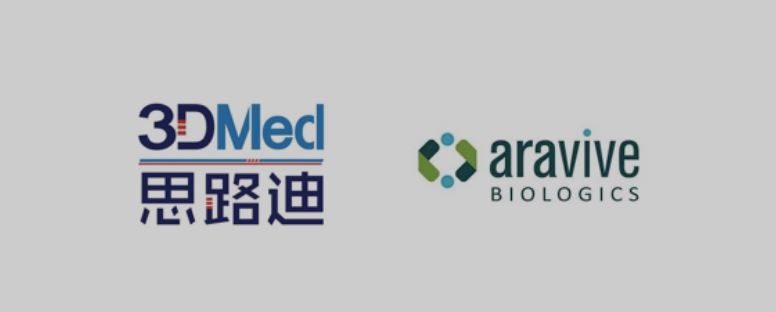
In November, 3DMed announced that it will obtain the exclusive authorization for the clinical development and commercialization of AVB-500, a new drug from Aravive Biologics, in the field of oncology in Greater China. This is an aspect of 3DMed in responding to slowing the trend of tumors and further constructing its pipeline layout throughout the entire cycle of tumor immunotherapy following the introduction of RMX1001 and RMX1002 from Haihe Biopharma on October 27, 2020.
AVB-500 is a high-affinity Fc fusion protein specific to GAS6. It is also a new type of GAS6-AXL signaling pathway inhibitor. At present, Aravive has successfully completed Phase Ib clinical trial of AVB-500 in platinum-resistant ovarian cancer in the United States. It is about to enter phase III clinical trials.
3DMed obtains exclusive authorization for tumor immunotherapy in Greater China from SELLAS
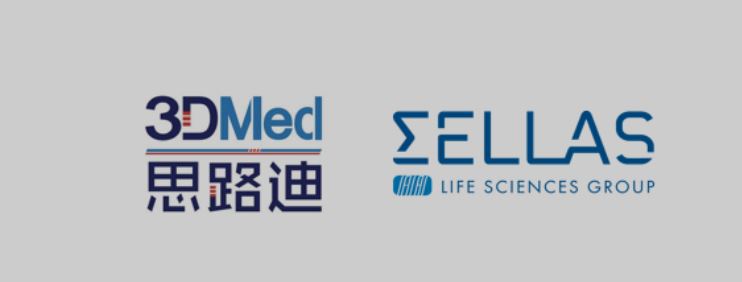
On December 8th, 3DMed obtained the exclusive development and commercialization of SELLAS’s innovative tumor immunotherapy drug Galinpepimut-S (GPS) and Galinpepimut-S plus (GPS+) in all indications in Greater China. According to the agreement, SELLAS will receive a contract payment of US$7.5 million and is eligible for a total payment of up to US$202 million including down payment and milestones.
GPS is an innovative tumor immunotherapy drug targeting WT1 (Wilms tumor protein). It is used to treat malignant hematoma and solid tumors with overexpression of WT1 antigen and is expected to become the world’s first drug for this target. In January 2020, SELLAS entered the key phase III clinical trial for CR2 (second complete remission) acute myeloid leukemia (AML).
The introduction of GPS and GPS+, as well as the two previously acquired non-opioid analgesic drugs for tumor pain RMX1001 and RMX1002, and the innovative drug AVB-500, which effectively blocks the GAS6-AXL signaling pathway, mark 3DMed’s role in tumor immunity.
Fosun Pharma obtains exclusive Chinese authorization for Polyphor’s new CXCR4 antagonist
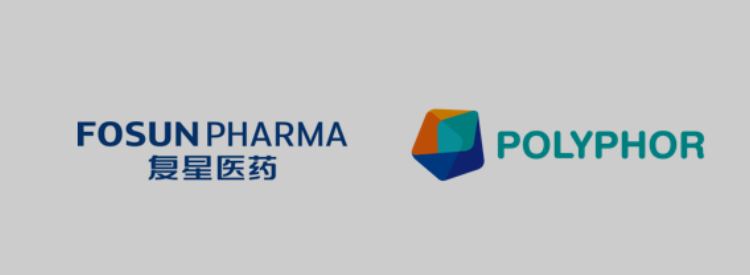
In September, Fosun Pharma obtained the exclusive right to clinically develop and commercialize Polyphor’s Balixafortide for metastatic breast cancer in China. The two parties will also jointly evaluate other cancer indications and combined treatment. Polyphor is a Swiss company. By the terms of the agreement, Polyphor received an upfront payment of US$15 million and is eligible for additional development milestone payments of up to US$19 million and sales milestone payments of up to US$148 million.
Balixafortide is a potent and highly selective CXCR4 antagonist developed by Polyphor. CXCR4 plays an important role in tumor growth, invasion, angiogenesis, metastasis and resistance to therapeutic drugs. Overexpression of CXCR4 is associated with the poor prognosis of many cancer subtypes.
LianBio introduces MyoKardia’s cardiomyopathy targeted drug
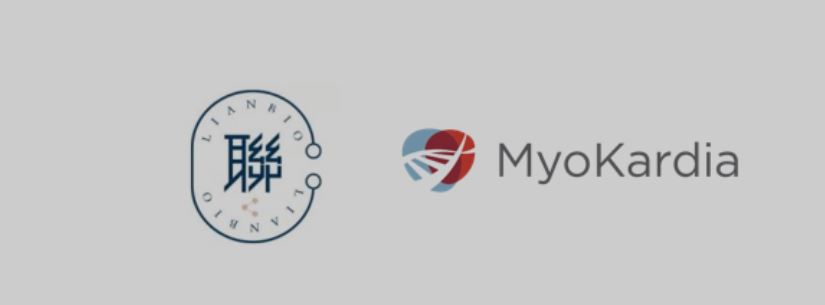
In August, LianBio also reached a strategic cooperation with MyoKardia to develop and commercialize the latter’s innovative cardiomyopathy targeted therapy mavacamten in China and other Asian regions. This is a first-of-its-kind small molecule therapeutic drug, which has been granted a breakthrough therapy designation by the FDA. MyoKardia received a payment of US$40 million at closing. It may be eligible to receive regulatory and sales milestone payments of up to US$147.5 million. MyoKardia is based in California.
Mavacamten is MyoKardia’s main therapeutic drug candidate. It plans to submit a new drug application for a drug candidate in the United States in the first quarter of 2021. Mavacamten is MyoKardia’s lead therapeutic candidate being developed for the treatment of patients with hypertrophic cardiomyopathy (HCM), as well as in a targeted population of patients with heart failure with preserved ejection fraction (HFpEF).
Simcere and G1 Therapeutics come to an agreement
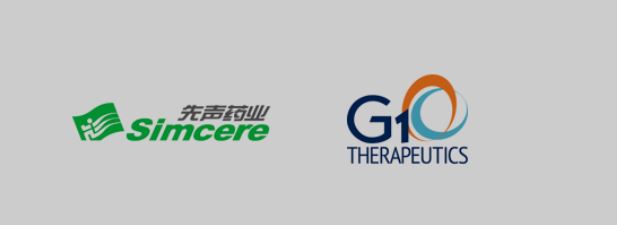
In September, Simcere Pharmaceuticals obtained the exclusive right to develop and commercialize G1 Therapeutics’ innovative drug Trilaciclib for all indications in the Greater China region. According to the agreement, the total transaction amount is close to US$156 million.
Trilaciclib is the world’s first innovative product of its kind designed to improve the prognosis of cancer patients with chemotherapy. Trilaciclib was given before chemotherapy for patients with small cell lung cancer and obtained FDA breakthrough therapy designation. In a randomized trial of patients with metastatic triple-negative breast cancer, Trilaciclib significantly improved the overall survival rate.
In June 2020, G1 submitted a new drug application to the US FDA for bone marrow protection in patients with small cell lung cancer. G1 expects to initiate a Phase III registered clinical trial for colorectal cancer in the United States in the fourth quarter of 2020.
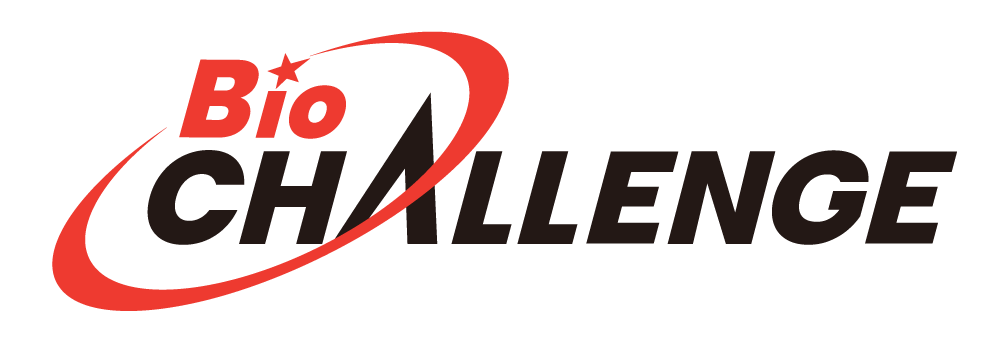
0 Comments